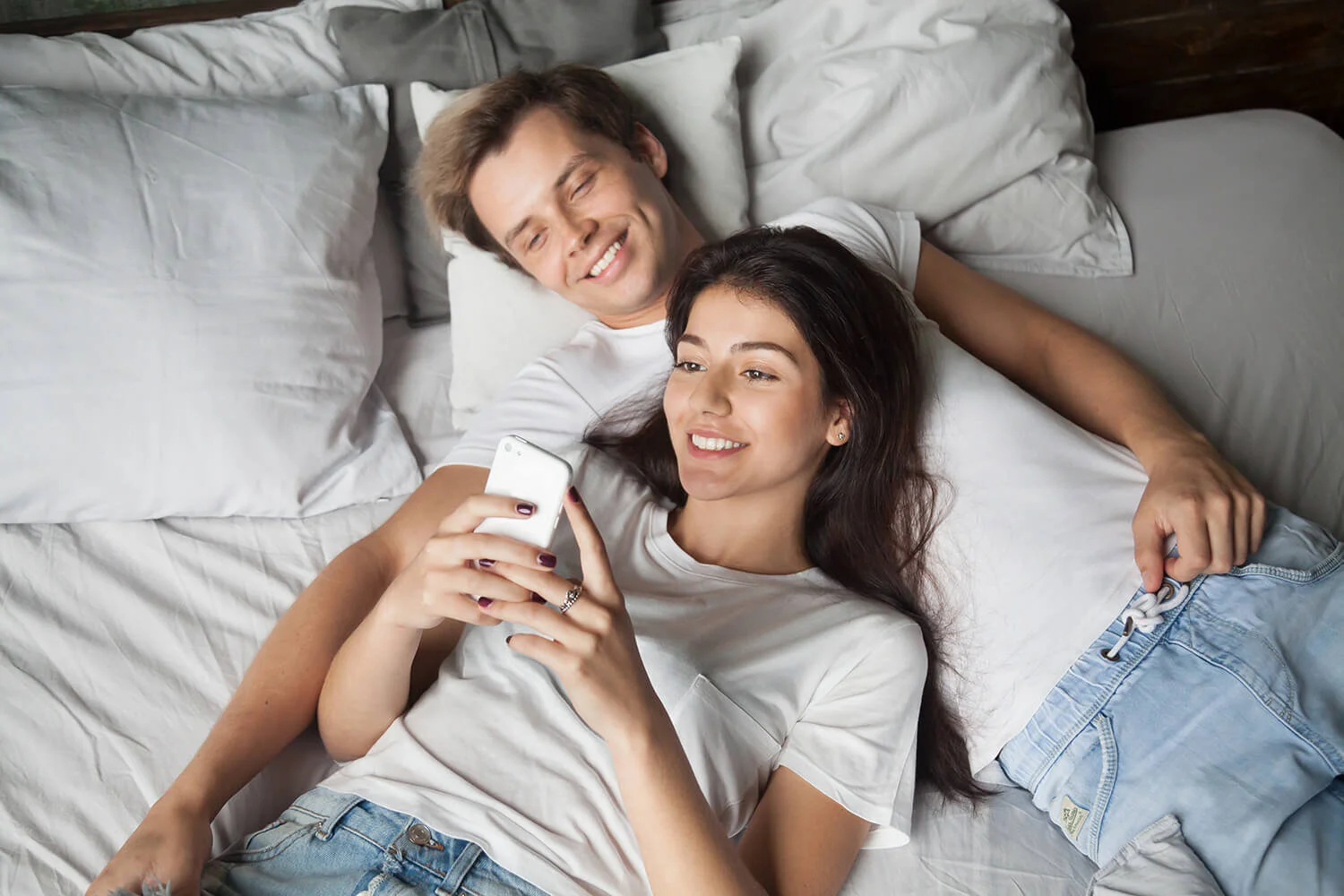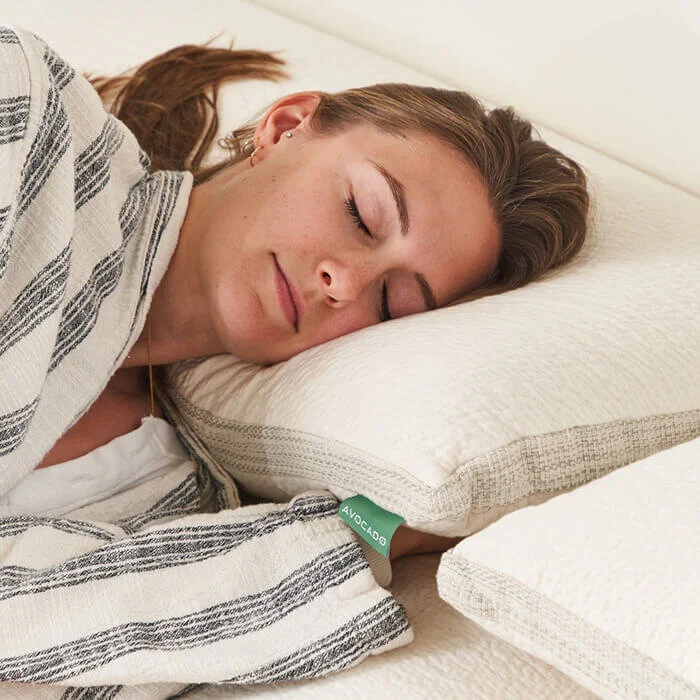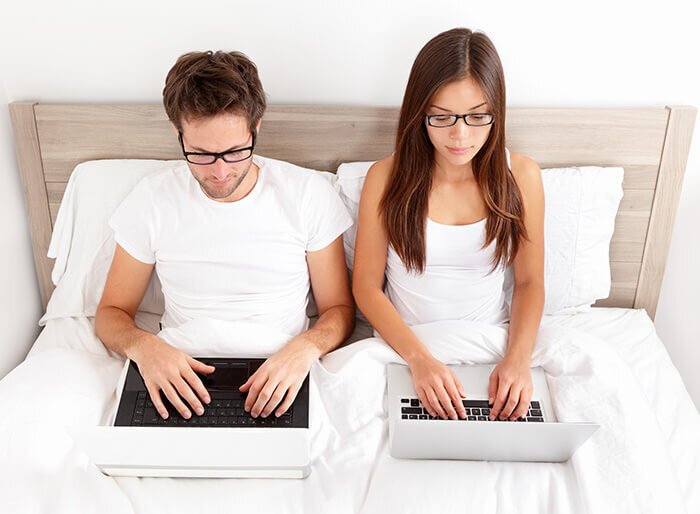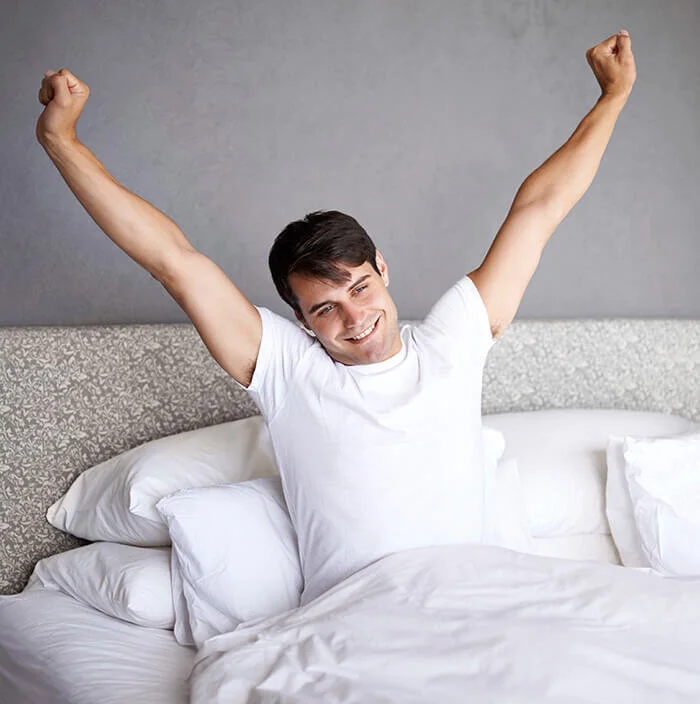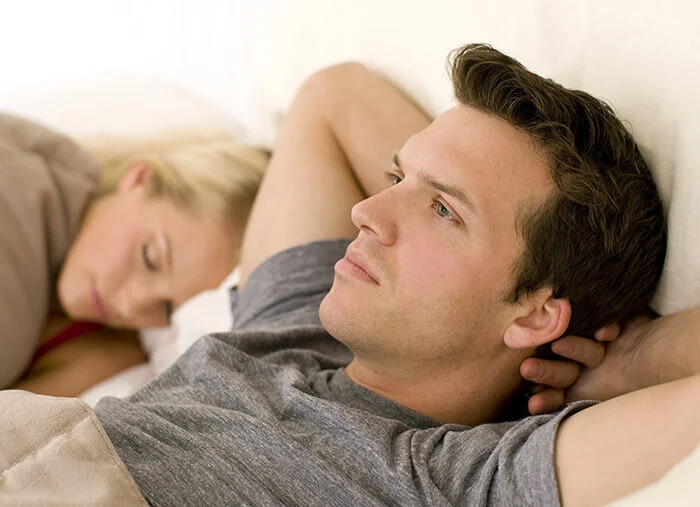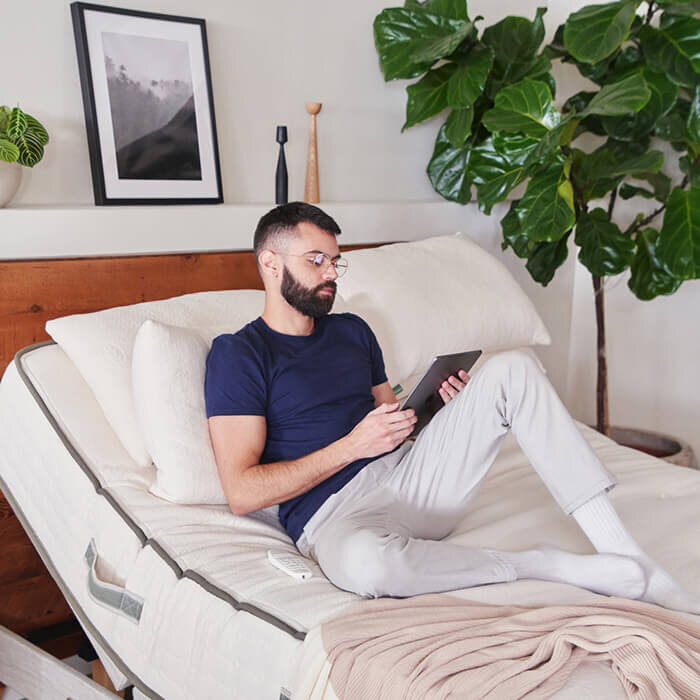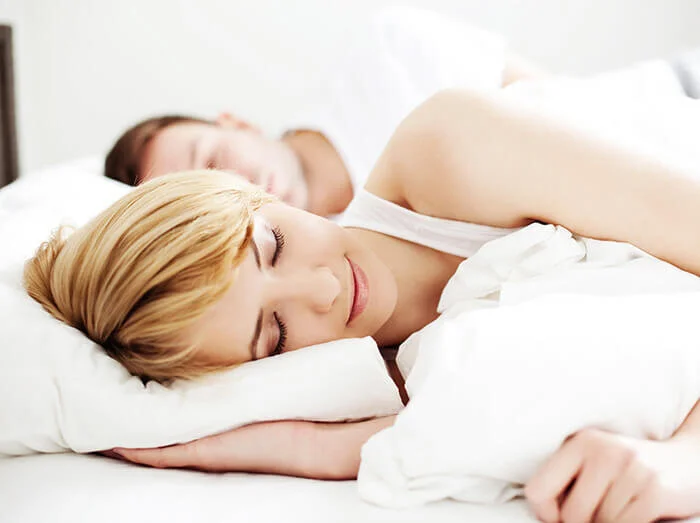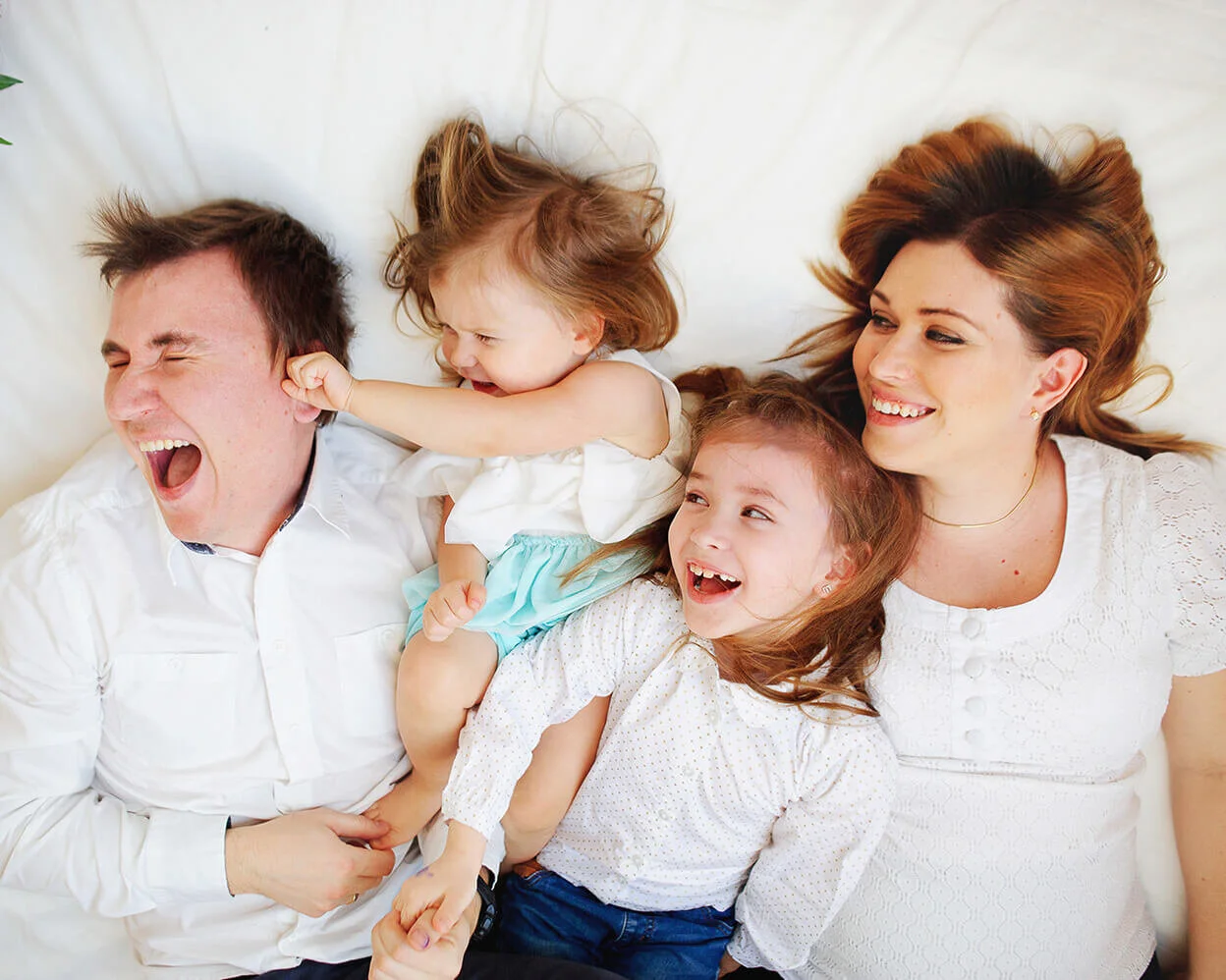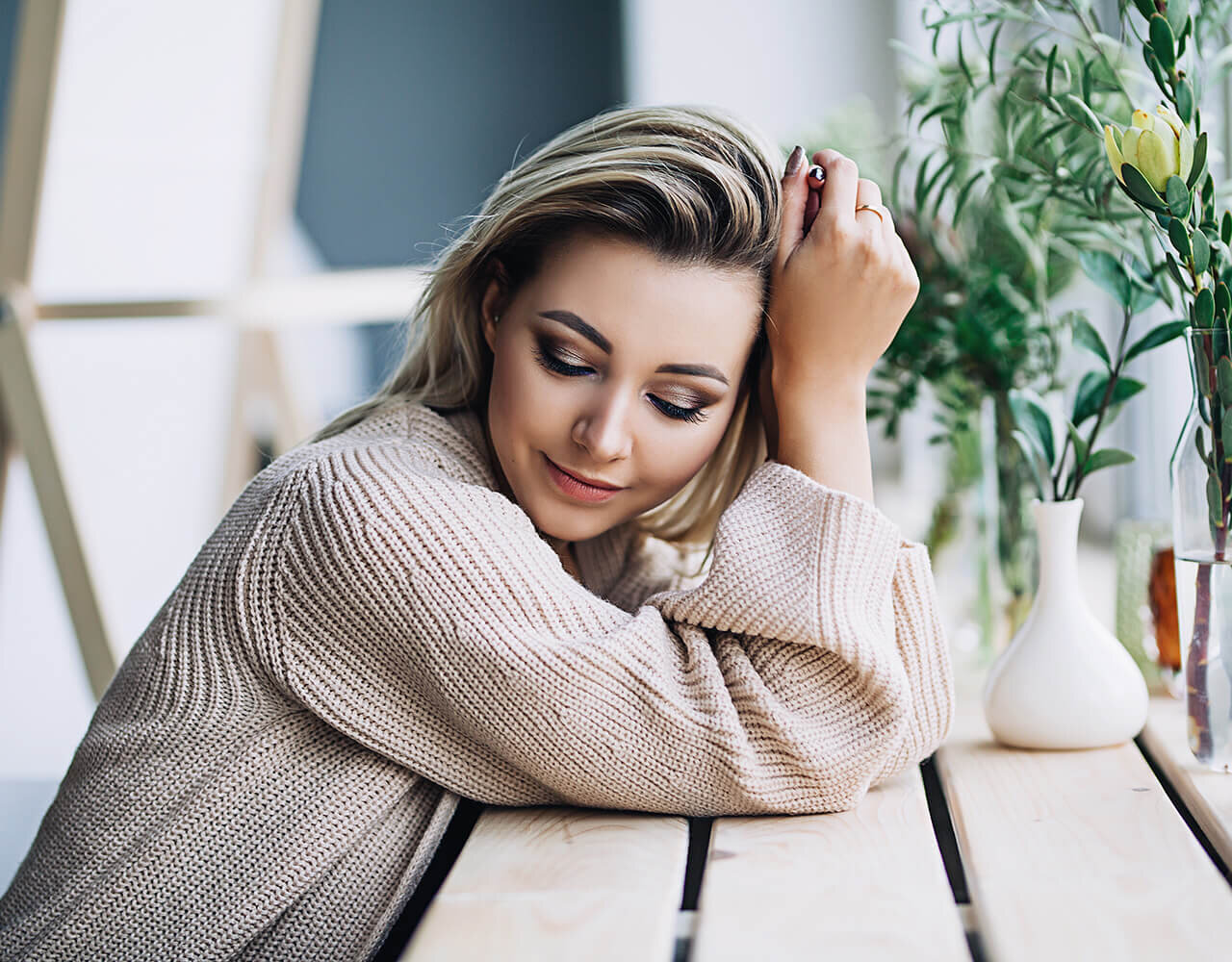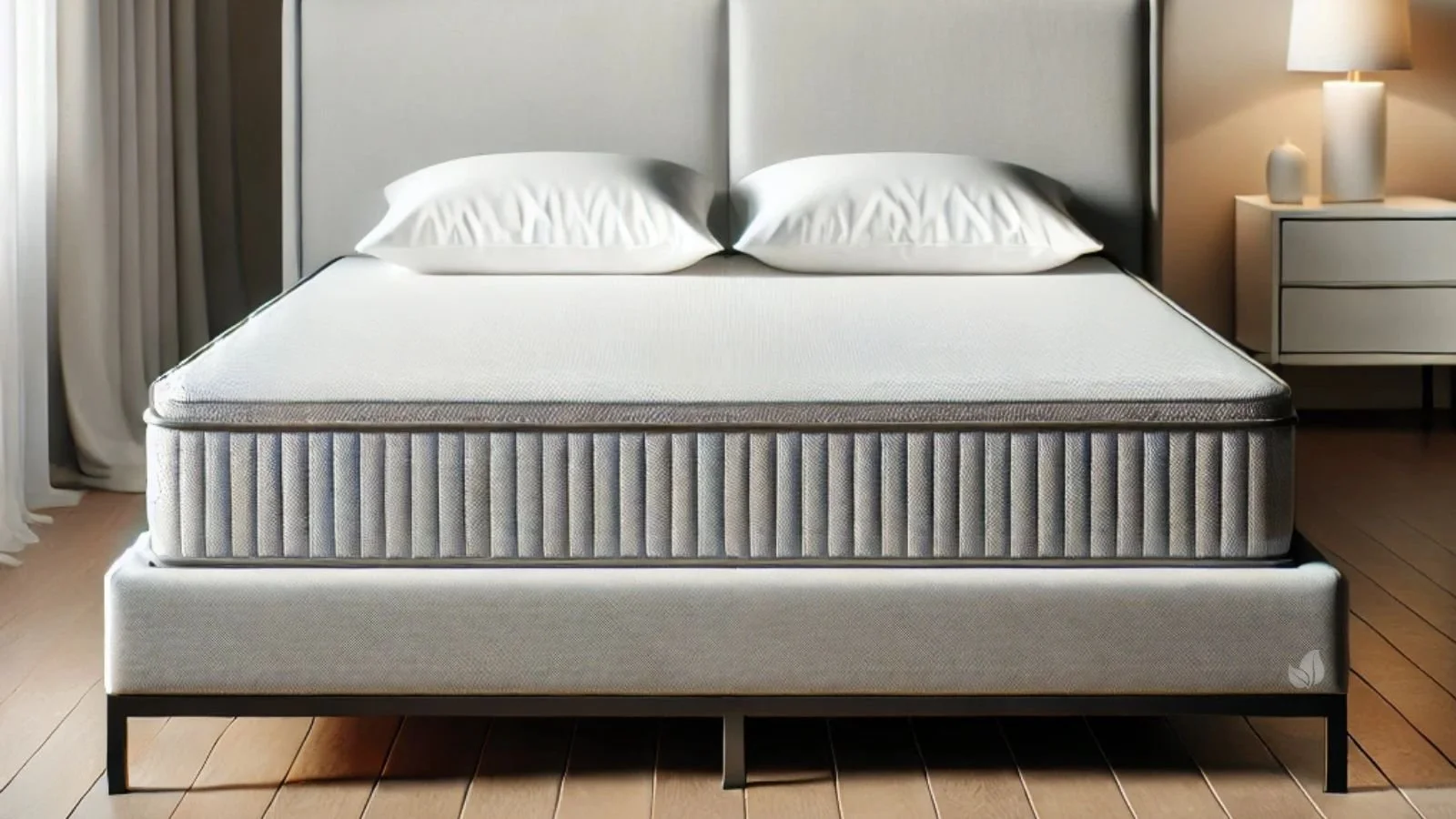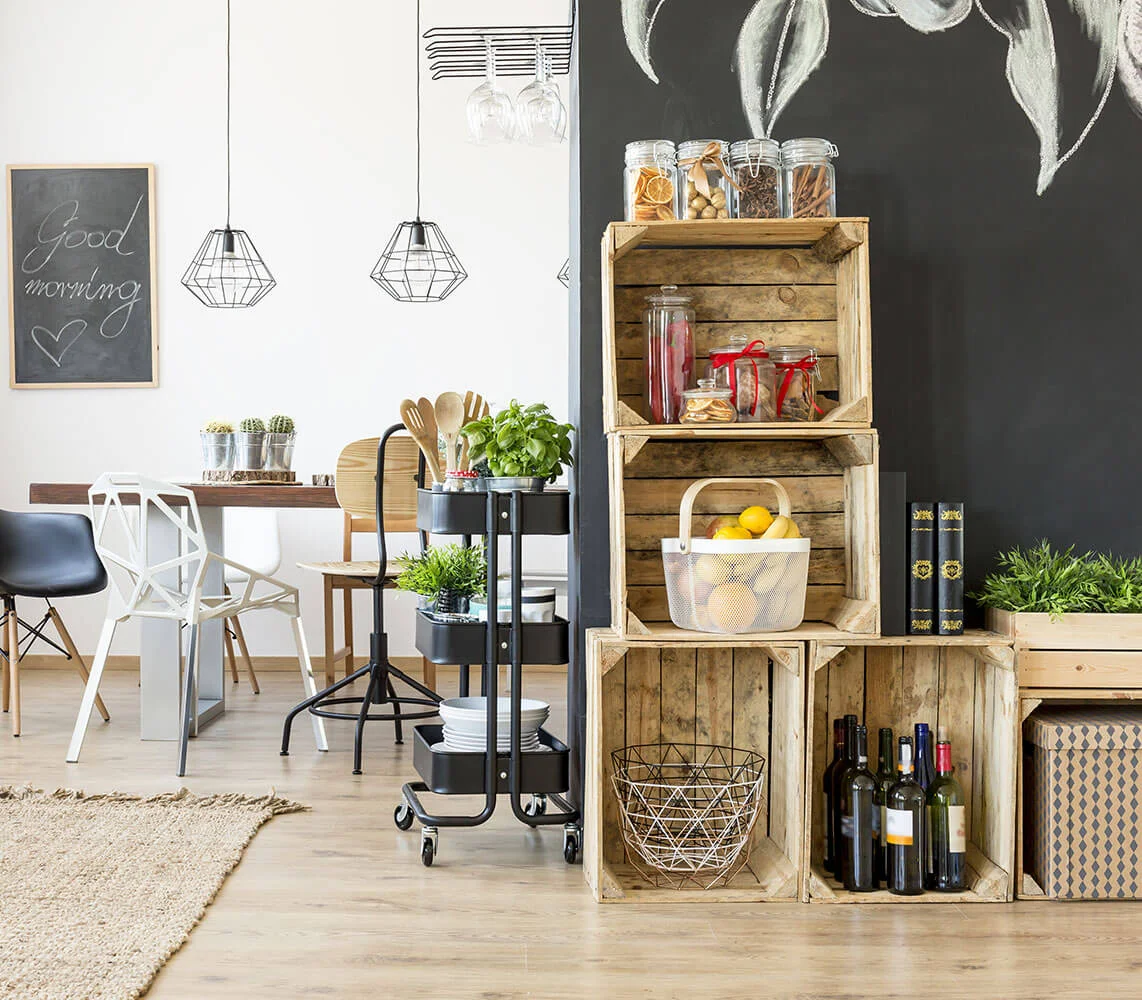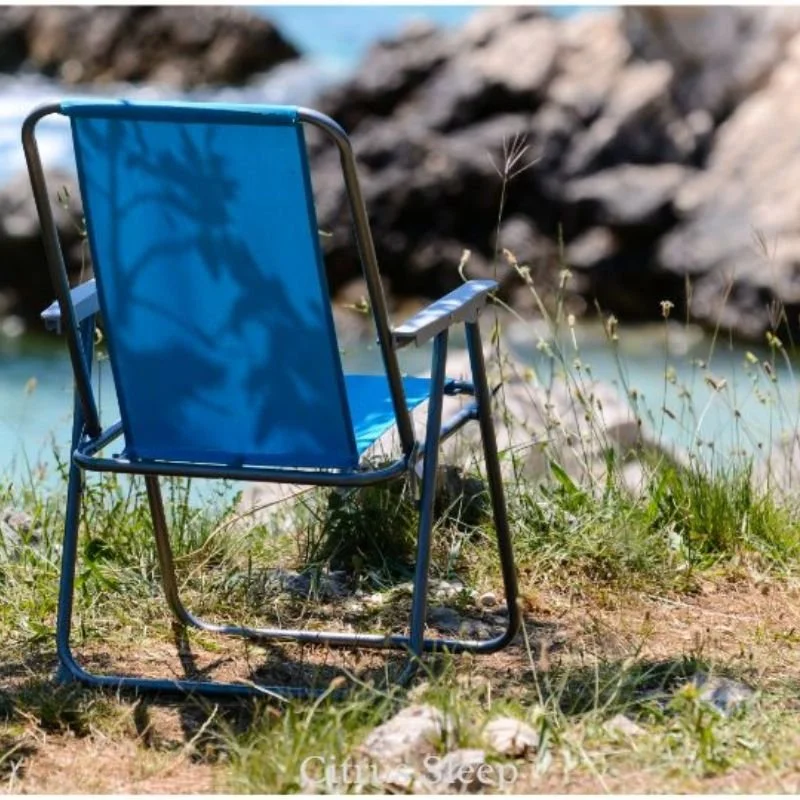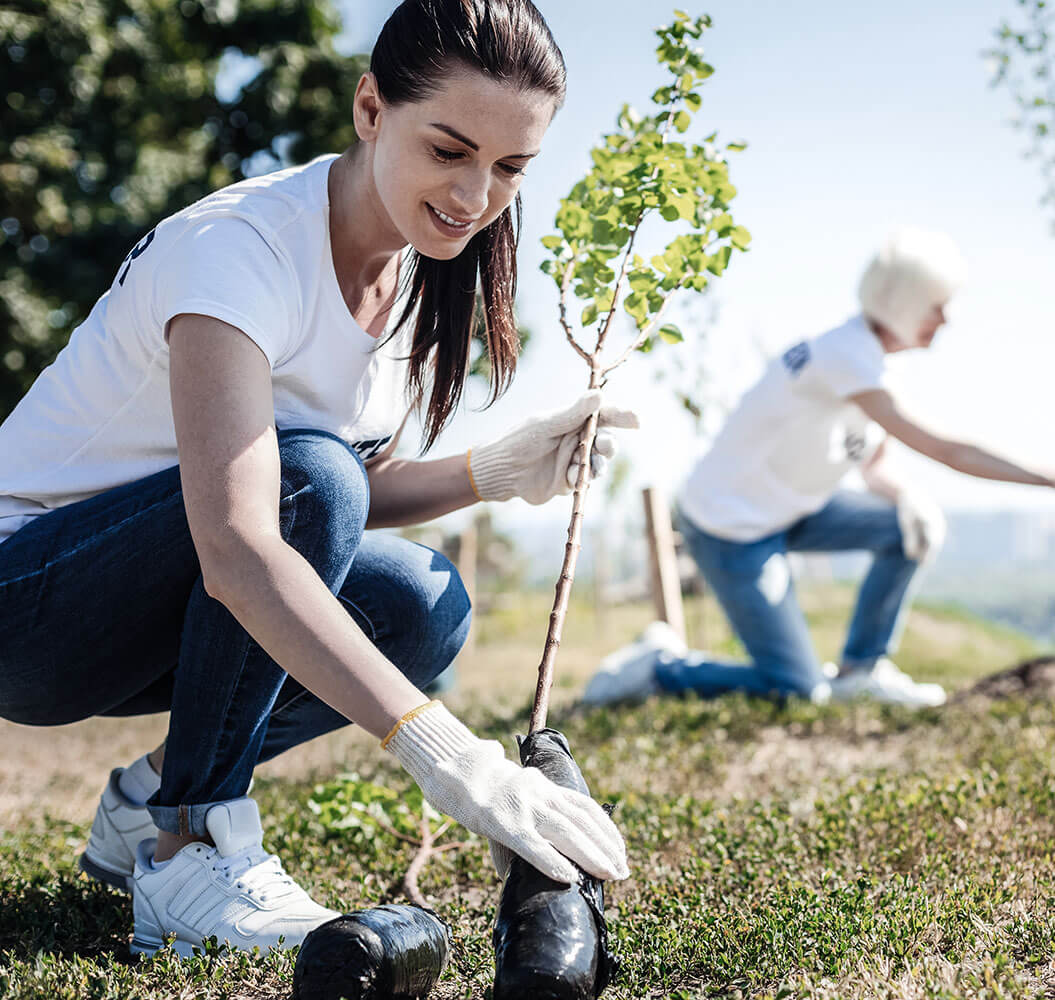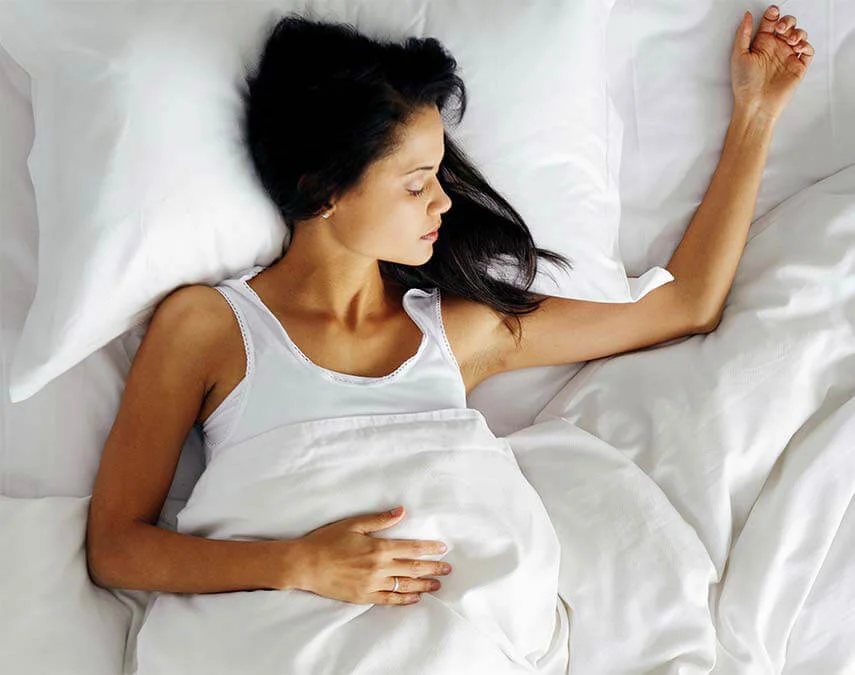Quality Sleep During COVID-19 Pandemic
Logging Quality Sleep During A Global Pandemic
Getting quality sleep is essential for recovery, especially when you're dealing with COVID. Symptoms like fever, cough, and fatigue can make restful sleep feel out of reach.
In this guide, we’ll share practical tips to help you manage symptoms, create a sleep-friendly environment, and improve your overall rest so your body can heal more effectively.
Here are some easy tips you can follow.
How Sleep Affects Mental Health
As you likely know if you have struggled to get quality sleep in the past, your mental state can really interfere with how well you fall asleep - and stay asleep. You might have trouble with both if you are experiencing any level of stress or anxiety.
After all, when you’re stressed out, you have a tendency to lie awake in bed, ruminating as you keep thinking about all of life’s stressors. It’s not uncommon to have the occasional sleepless night, and in reality, not getting enough sleep one or two nights here or there won’t make a huge difference in your overall health and wellbeing.
However, it’s important to note that your mental health and sleep quality are closely connected, and mood can affect sleep - and vice versa.
The symptoms of declining mental health and sleep disturbance overlap. If you’re tired, you might find that you have trouble concentrating. You might also feel fatigued, irritable, or weepy. Similarly, a person who is suffering from various mental health problems might notice the same symptoms, often at the same level of intensity.
During the COVID-19 pandemic and even before, insomnia is one of the most common sleep problems that people face. This tends to be directly influenced by a person’s level of stress and anxiety. It occurs when you have trouble falling asleep at night and waking up in the morning. Unfortunately, for many people, insomnia has only been worsened as the pandemic intensifies.
It’s not all bad news, though. Believe it or not, some sleep doctors report that they have some patients who are actually getting better sleep since the pandemic began. Why?
If you’re an introvert - especially somebody that is very introverted, for whom leaving the house is stressful in itself - you may find that day-to-day expectations have changed and that your new lifestyle is one to which you are much better suited.
How Sleep Affects Physical Health
Sleep also plays a role in your physical health and physiology. If you have obstructive sleep apnea, for instance, and are not actively treating it, you will find that you are at an increased risk for high blood pressure, cardiovascular disease, and atrial fibrillation.
Sleep deprivation can harm your health in other ways, too. It can really limit your ability to function on a daily basis, even at the most elementary level.
For instance, if you are sleep deprived, you are going to be at an increased likelihood for a motor vehicle accident or for making an on-the-job mistake. You might get headaches or even be more likely to fall ill.
This last piece bears repeating - your immune system is going to suffer if you don’t get enough (and high-quality) sleep. That’s devastating during a global pandemic, particularly one as severe and as widespread as the COVID-19 pandemic. When you don’t get enough sleep, your immune system takes a nosedive - making you more susceptible to viral illnesses and contagions like COVID-19.
Maintain a Regular Sleep Schedule
While the side effects of too little sleep may terrify you, try not to let them serve as frightening omens but instead, let them sound the alarm bell. If you aren’t getting enough sleep, it’s time to reconsider your sleep habits.
Start with maintaining a regular sleep schedule. This is one of the best and easiest ways to begin reforming your sleep quality.
While it sounds complicated, it’s quite simple. Go to bed and wake up at roughly the same time each day. When you go to bed and wake up at vastly different times during the week and on the weekends (we’re looking at you, weekend warriors), your body has a hard time adjusting to the shift.
Sure, it can feel luxurious to sleep in late long into the afternoon hours on Saturday mornings. However, you are doing more harm than good. Plenty of studies have shown that you really can’t make up for lost sleep - so trying to do so by skimping on sleep during the week and logging it all during the weekend isn’t really doing your body any favors.
Interestingly, some people are reporting that they have been getting more sleep during the COVID-19 pandemic. Most sleep doctors believe that this is because they no longer have set wake-up times or morning commutes to try to squeeze in. While you might fall in this subset of people that are now able to sleep in later, don’t fall victim to sleeping half the day away - and then staying up until the wee hours of the morning.
It can be incredibly difficult to stick to a sleep schedule at any time, but especially now, when many people no longer have set wake-up times and are isolated at home. However, it’s important to be consistent with your wake-up time. This will help you get more sleep - and higher quality sleep - as a result.
Set a schedule, and try your best to stick to it.
Avoid Taking Naps During the Daytime
If you find that you just can’t keep your eyes open during the daytime hours, try not to nap. This can be tempting when you’re working from home and the bed keeps calling to you. However, naps can be detrimental. Not only can they make you more tired in the evenings, but they can make it harder for you to fall asleep, too.
Unless you’re a new mom who’s trying to get a few bouts of sleep while caring for a newborn, there are very few people who should actually be taking naps during the daytime. When you nap frequently during the day, your sleep quality at night is going to diminish - especially if those naps are long, drawn-out, and poorly timed.
Research has found that naps are only effective if you take them properly. If you sleep well on a regular basis, a short nap can improve your memory - but if you find yourself taking lengthy naps, that can start to interfere with your nighttime sleep schedule.
Naps can interfere with your body’s natural sleep rhythm and make it harder for you to fall asleep at night. When you take naps that are too long (really, anything longer than twenty minutes or so), you’re also going to feel more groggy and tired when you wake up - so a refreshing nap really may not be in the cards for you.
Be Active During the Day
How much exercise are you squeezing in? Yes, you might be quarantined at home, but that doesn’t mean you can’t get in a few short bursts of exercise here and there. Consider how you can start fitting exercise into your daily routine.
You don’t need to start training for a marathon, either. Something as simple as taking a quick walk around the block is often enough to get the juices flowing and make you feel a bit more alert. If you feel as though you can’t resist the urge to take a nap, try going for a short walk or run instead. It might give you the boost of energy you are looking for.
Be Wary of Sleeping Too Much
While you might think that the best way to feel more awake is to sleep more, that’s not always the case. Sometimes, it can have the opposite effect.
Start sleeping too much, and you may find that you feel just as tired as if you were skimping on the shut-eye. Too much time in bed can make you feel more tired - and perhaps even frustrated when you don’t feel rested in the morning. Seven to eight hours of sleep each night is really all you need to feel well-rested.
Take a Break from Electronics and the News
It’s no secret that our cell phones aren’t exactly good for us - and unfortunately, it’s not just cell phones when it comes to troublesome electronics and poor sleep quality, either.
Try to turn off your television and smartphone at least an hour before you go to sleep. There are numerous studies that prove that the blue light from electronic devices can make it harder for you to fall asleep.
What if you’re one of those people who claim that you need the television on to fall asleep? Well, that’s likely not the case. You might fall asleep easier when you have the white noise of the television to lull you into a stupor, but your sleep won’t be high quality.
It’s the same theory behind drinking alcohol before bed. You might feel sleepy and drift off easily, but your sleep will be disrupted. You will likely wake up crankier, more agitated, and feeling less well-rested than you would have if you fell asleep more naturally.
Right now, the news is a major source of anxiety for people. Whether you’re scrolling through the latest COVID-19 updates on your cell phone or listening to them on the nightly news, do your best to detach from the news.
It’s not a bad idea to stay apprised of the latest goings-on, of course, but you don’t need to subscribe to updates 24/7. Not only will this make you feel more anxious during the day, but it will make it more difficult to fall asleep at night, too.
Sleep affects your overall health and COVID defenses
When it comes to bedtime, your bedroom should be a sanctuary. You shouldn’t start ruminating over all the world’s problems as soon as you place your head upon your pillow. It can be tough to have a serene, peaceful mindset when it seems like the world is exploding around you, but giving yourself a chance to relax before bedtime will help set the scene.
Practice good self-care all day, but especially right before bedtime. Stash all electronics (ideally, you should be powering them down) an hour or two before it’s time to hit the sheets. Do something that relaxes you.
This will vary between people, but for some, that might mean doing a light yoga routine, while for others, it means relaxing in a warm bathtub with an entertaining book. Other people might pray or meditate before bed.
Ultimately, it doesn’t matter what you do as long as it’s something that is relaxing and comforting to you. Avoid electronics if you can, as this will not only impact your anxiety and sleep quality, but can even lower your immunity because of the run-off effects of stress, too.
Unplug, unwind, and get a good night’s sleep.
Sleep Tips To Consider For Better Sleep During COVID-19 Pandemic
It’s not uncommon for most of us to experience sleep disturbances for a few days or weeks at a time. After all, not everybody can get a perfect eight hours each and every night of the week. Life gets in the way!
However, if you find that you have pervasive symptoms that last for several weeks or begin to interfere with your daily life, it might be time to seek professional help.
What are some signs that you are suffering from a serious sleep disorder? You might find that you are extremely tired during the day. Do you fall asleep or notice that your head is bobbing while you are driving or riding in a car? Are you falling asleep at work? Has your spouse noticed you snoring at night?
Any of these issues can be signs of a sleep disturbance - but remember, sleep disturbances themselves are often symptoms masked as problems. You could be suffering from anxiety, stress, and mood disturbances that are making it more difficult for you to fall and stay asleep. COVID-19 has not been an easy time for anybody, and for many people, the related stressors have spilled over into other areas of life, too.
Seek medical help or counseling if you are suffering from severe anxiety - your sleep quality will likely improve as a result.
Jessica Lauren is Founder, contributing Author and Owner of Citrus Sleep. Citrus Sleep is an online publication that highlights brands, sleep products, women’s fashion, subscription services and ideas creating positive social change and promoting a healthy lifestyle. After spending nearly a decade working in PR and marketing for several brands and startups, Jessica knows what truly drives conversions, sold-out launches and guest posts.
Follow Jessica at @jessicalaurencs | Jessica Lauren

